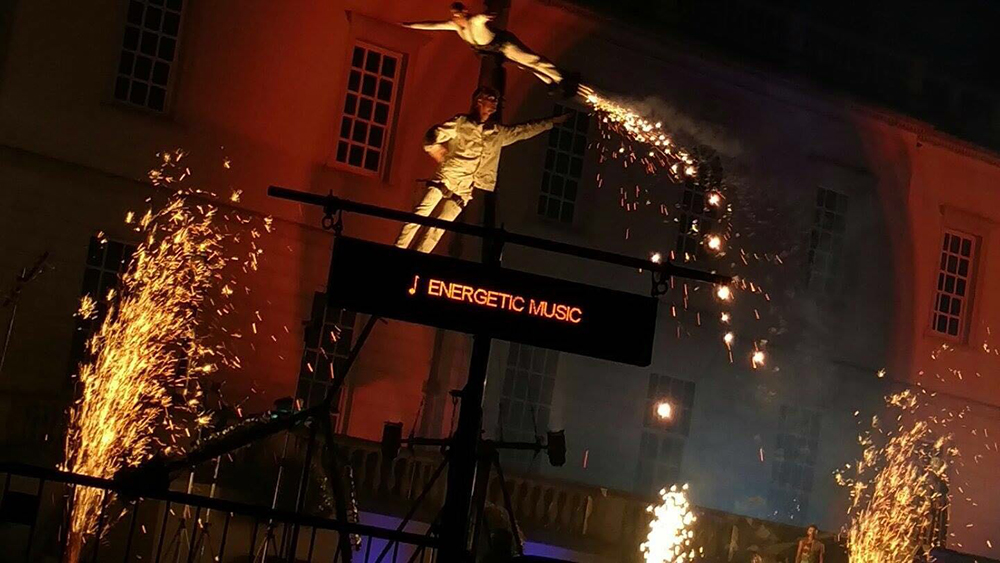- Stagetext says more arts venues need to embrace accessibility for d/Deaf, deafened and hard of hearing audiences and publicise services better
- Stagetext calls on general public, actors and other cultural figures to help break the stigma attached to hearing loss by talking more openly about their own experiences
- Call comes as Captioning Awareness Week begins today (11-17 November), which includes live captioned performances of Mamma Mia and Kinky Boots, alongside other musicals, plays, talks and exhibitions across UK
Stagetext has called for theatres, museums and galleries to do more to enable people with hearing loss to feel welcome and included.
The call comes as Stagetext launches Captioning Awareness Week (11-17 November), which will see theatres, museums and galleries hold captioned and live subtitled events to promote access, find new audiences, and improve people’s experiences within the arts.
Stagetext points to a report it published last month [1], which found that only 19% of theatres list captioned performances on their websites, with 26% failing to share any access information whatsoever.
Around 11 million of the UK population are d/Deaf, deafened or hard of hearing – that’s 1 in 6 people. While 1% are fluent in British Sign Language (BSL) the vast majority don’t use BSL.
A number of big arts venues in London have signed up to take part in Captioning Awareness Week, including the British Library and the National Theatre. They are joined by a number of venues across the UK, including in Bolton, Hull and Sheffield.
Melanie Sharpe, CEO of Stagetext, said: “Arts venues should be proud about what they offer people with hearing loss. Instead, too many see it as an add-on service, with often little information on their websites about what’s available.
“Providing services such as captioned performances changes lives. We often hear of stories from our users who feel socially isolated because they can no longer enjoy the arts anymore. It doesn’t just impact them, it impacts their family and friendship circles too. Captioned performances at theatres, museums and galleries gives them an opportunity to enjoy those experiences again with friends and family.”
Sarah Neale, who will be going to see Mamma Mia during Captioning Awareness Week with her daughter, in what will be their first captioned performance together, said: “I am profoundly Deaf and I contacted Stagetext because I wanted to take my hearing daughter to a show that we could both follow. My local theatre wasn’t doing a captioned performance of their pantomime but thanks to Stagetext I got the wonderful offer of seeing Mamma Mia in London. It’s our first West End musical and we are both very excited to share it together.”
Regular caption user Hala Hashem, said: “I still remember my first ever live captioned performance and how excited I was. I could finally understand everything that was being said and was very impressed with the captions. As I gradually lost my hearing throughout childhood and then became profoundly deaf, I struggled to follow theatre shows and used to dream if I would ever get full access. I just love Stagetext for making my dream come true and for making this world accessible to me and others. I strongly support Captioning Awareness Week as I know it will give others like me the opportunity to fully experience the theatres, museums and all arts. No-one should be left behind.”
Stagetext says that making arts venues more accessible is important for tackling social isolation, particularly amongst the elderly. A 2016 ComRes poll found that three quarters of older people say that arts and culture is important to making them feel happy, with half saying that arts and culture is important in helping them to feel less alone.
Stagetext has also called on the general public, actors and other renowned cultural figures to help raise awareness of the issues facing d/Deaf, deafened and hard of hearing people by talking more openly about their experiences of hearing loss.
The week will also see Stagetext’s CEO Melanie Sharpe address museums about the campaign at Wellcome Collection on Tuesday 12 November [2].
Notes to editor
[1] 629 venues across the UK were audited as part of the report State of Theatre Access 2019: http://www.stagetext.org/news/460-less-than-one-in-five-uk-theatres-list-captioned-performances-on-their-websites
[2] For a press pass or for more information please contact [email protected].
About Stagetext
Stagetext is a registered charity which provides captioning and live subtitling services to theatres and other arts venues to make their activities accessible to people who are d/Deaf, deafened or hard of hearing.
It was established in May 2000 by Peter Pullan, Merfyn Williams and Geoff Brown, each of whom had varying types of deafness and a determination to improve access to the performing arts for all deaf, deafened and hard of hearing people.
Stagetext is a National Portfolio Organisation of the Arts Council England.
About Captioning Awareness Week
Captioning Awareness Week is an opportunity to celebrate arts access for d/Deaf, deafened, and hard of hearing audiences. We get together with theatres, museums, and galleries from across the country to show what’s on offer, how access is being provided, and to tell the stories of people who use access and how it affects their lives.




